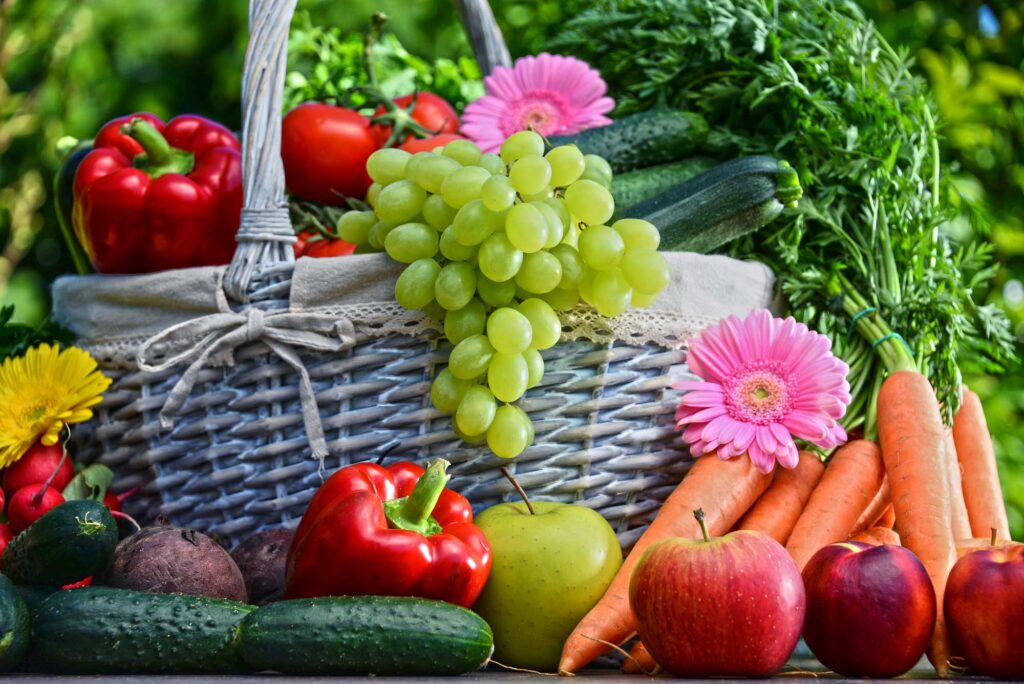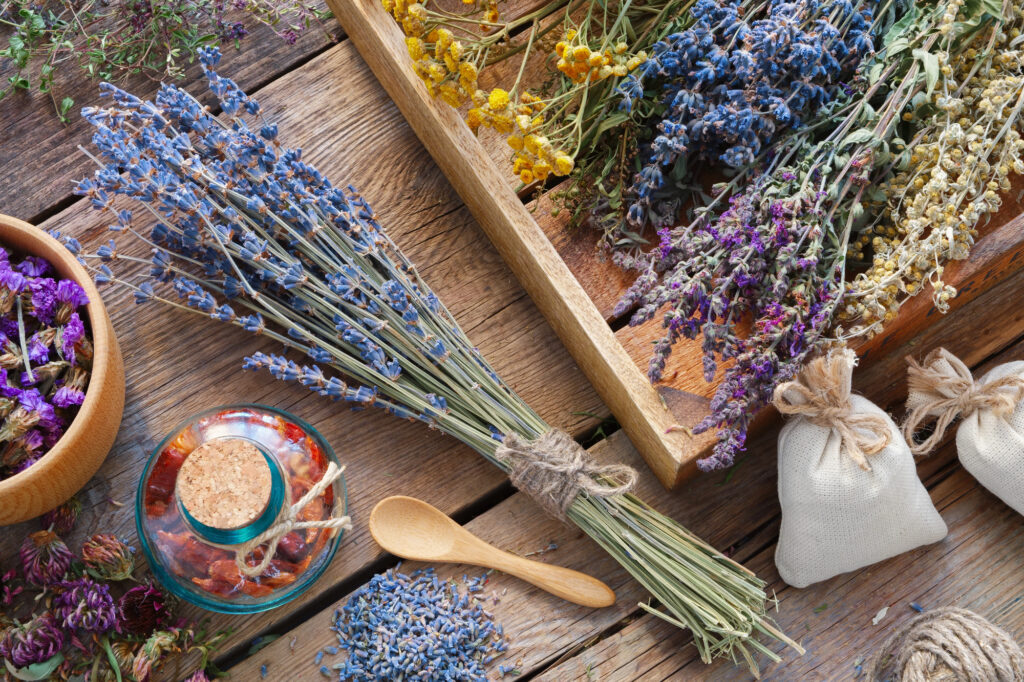As the holiday season approaches, we are surrounded by twinkling lights, festive decorations, and the warmth of cherished traditions. This time of year invites us to reflect on the blessings in our lives and cultivate a spirit of gratitude. Embracing gratitude can transform our experience of the holidays, helping us focus on what truly matters and find joy in life’s simple pleasures. While the season brings much happiness, it can also bring stress and overwhelm. Take this time to start incorporating self-care and boundaries into your routine.
Setting boundaries with grace allows us to prioritize our well-being without sacrificing the love and connection we share with others. We can learn to say no to obligations that drain us and yes to activities that fill our cups. Taking time for self-care – whether through meditation, a warm bath, or a quiet walk – is not just a necessity, but a joyous act of self-empowerment. It replenishes our energy and allows us to show up more fully for those we care about.
The holidays provide a unique opportunity to cultivate love for ourselves and others. By practicing self-compassion and extending kindness to those around us, we create a ripple effect of positivity. Small acts of love, like writing a heartfelt note or helping a neighbor, can brighten someone’s day and remind us of our shared humanity. As we navigate this season, let’s approach each moment with an open heart and a spirit of generosity.

The Essence of Gratitude in the Holiday Season
Gratitude transforms our holiday experience, elevating joy and deepening connections. It’s a powerful practice that enhances our well-being and relationships during this special time of year.
Understanding Gratitude and Its Impact
Gratitude is more than saying “thank you.” It’s a mindset that acknowledges the good in our lives. During the holidays, gratitude can shift our focus from stress to appreciation, offering a beacon of hope and optimism in the midst of the hustle and bustle.
Practicing gratitude boosts positive emotions and reduces anxiety. It strengthens our relationships by recognizing others’ kindness. Gratitude also improves physical health, leading to better sleep and increased energy.
Research shows grateful people are more resilient to challenges. They tend to have a more positive outlook, even in difficult times. This resilience is especially valuable during the busy holiday season.
Cultivating a Gratitude Practice
Starting a gratitude practice is simple and rewarding. We can begin by keeping a gratitude journal, writing down three things we are thankful for daily. This habit trains our minds to notice the positives in our lives.
Another effective method is expressing appreciation to others. We can write thank-you notes or verbally acknowledge acts of kindness, boosting our mood and strengthening our connections.
Mindfulness meditation can enhance our gratitude practice. By staying present, we become more aware of the small joys in our daily lives. We can also create gratitude rituals, like sharing thoughtful stories at family meals.
Self-Care Strategies for a Joyful Season
The holiday season brings unique challenges to our well-being. We can cultivate joy and balance by focusing on mental health, self-love, and mindfulness practices.
Prioritizing Mental Health During Holidays
Mental health deserves our attention year-round, especially during busy holidays. We recommend setting realistic expectations for ourselves and others. It’s okay to say no to invitations or traditions that don’t serve our well-being. Prioritizing self-care and boundaries is crucial during a time when we tend to be overwhelmed by upcoming gatherings or events, or dealing with the stress of feeling alone and missing loved ones.
Creating a daily routine can provide stability amidst the chaos. Implementing regular sleep schedules, healthy meals, and time for relaxation is essential. We should also be mindful of our limits when it comes to spending, socializing, and consuming alcohol.
Seeking support is crucial. Whether talking to a trusted friend, joining a support group, or speaking with a therapist, reaching out can make a significant difference in managing holiday stress.
The Role of Self-Love in Emotional Health
Self-love forms the foundation of emotional well-being. We can start by practicing self-compassion, treating ourselves with the same kindness we offer to loved ones. It is important to acknowledge our feelings without judgment and forgive ourselves for perceived shortcomings, validating our experiences and fostering a sense of understanding.
Engaging in activities that bring us joy is a form of self-love. Begin by reading a book, taking a warm bath, or pursuing a hobby. We should make time for these activities, even during the busy holiday season.
Setting boundaries is an act of self-love. Communicating our needs clearly and respectfully to family and friends is important. Remember, it’s not selfish to prioritize our own well-being.
Incorporating Mindfulness and Meditation
Mindfulness and meditation can be powerful tools for managing holiday stress. We can start with simple practices like deep breathing exercises or body scans. Even a few minutes of focused attention can help center our minds.
Mindful eating is particularly relevant during the holidays. We can savor each bite, paying attention to flavors and textures. This practice can help us enjoy festive meals without overindulging. Take time to enjoy your meals or holiday treats and be present in the moment.
Gratitude meditation can shift our focus to the positive aspects of the season. Set aside time each day to reflect on things we’re thankful for, big or small. This practice can foster a sense of contentment and joy.

Navigating Social Gatherings with Grace
Social gatherings during the holidays can be both joyful and challenging. We’ll explore strategies for managing expectations, finding balance, and fostering meaningful connections.
Setting Realistic Expectations
We often imagine picture-perfect holiday gatherings, but reality rarely matches these ideals. It’s crucial to adjust our expectations. We can focus on creating enjoyable moments rather than striving for flawless events.
Family dynamics may be complex. Even if it’s a special occasion, we should expect long-standing issues to remain. Instead, we can aim for pleasant interactions and avoid sensitive topics. Creating this routine is part of self-care and boundaries.
It’s okay if only some gatherings go smoothly. We can view challenges as opportunities for growth and learning. Sometimes, we need to take baby steps to implement self-care and boundaries. Setting achievable goals reduces stress and increases our chances of genuinely enjoying social events.
Balancing Togetherness and Personal Space
Let’s face it, holiday gatherings can be overwhelming in various ways. It is a crucial time to find balance between socializing and taking time for ourselves. It’s perfectly acceptable to step away for short breaks to recharge.
We can communicate our needs clearly to hosts and guests. Setting boundaries doesn’t mean we’re being rude—it shows respect for our personal well-being and helps us be more present when we engage.
Scheduling alone time before or after events can help us maintain our energy and recharge. Start by walking in nature, meditating, or sitting quietly for a few minutes. These moments of solitude can make social interactions more enjoyable.
Embracing Community and Connection
Despite potential challenges, social gatherings offer valuable opportunities for connection. We can focus on fostering genuine relationships and creating lasting memories.
Engaging in shared activities can strengthen bonds. We might organize group games, collaborate on meal preparation, or participate in local holiday events together.
Active listening is key to meaningful conversations. By asking thoughtful questions and offering sincere responses, we can show interest in others’ lives and experiences.
Expressing gratitude can enhance our sense of community. We might share what we appreciate about each person present or reflect on positive moments from the past year together.

Establishing Healthy Boundaries
Implementing self-care and boundaries during the holidays allows us to care for ourselves while nurturing relationships. Clear communication and self-awareness are key to maintaining balance and reducing stress.
The Importance of Saying No
During the holidays, we often feel pressure to say yes to every invitation or request. Learning to decline gracefully is crucial for our well-being. Saying no allows us to prioritize our time and energy. It’s not selfish—it’s necessary to implement self-care and boundaries for peace of mind.
Start small by declining minor commitments. This builds confidence to set more significant boundaries in the future. Remember, each “no” to an obligation is a “yes” to our personal needs.
Boundaries protect our mental health while reducing overwhelm and resentment. By limiting our commitments, we create space for meaningful experiences.
Tools for Communicating Boundaries
Clear, kind communication is essential when setting boundaries. We can use “I” statements to express our needs without blame. For example: “I need some quiet time to recharge.”
Active listening helps us understand others’ perspectives. We can acknowledge their feelings while holding firm to our limits.
Applying self-care and boundaries takes practice. We can role-play difficult conversations with a friend, and practice can build confidence for real-life situations.
It’s helpful to prepare simple scripts for common scenarios. Having ready responses reduces stress in the moment.
Making Time for Reflection and Transformation
Reflection and transformation are powerful tools for personal growth. By pausing and examining our lives, we can chart a course toward a more empowered future.
The Value of Reflection in Personal Growth
Reflection helps us gain clarity and perspective. We can identify patterns in our behavior, relationships, and choices. This awareness allows us to make intentional changes and grow.
Regular self-reflection boosts emotional intelligence. We become more attuned to our feelings and reactions, and this self-knowledge empowers us to respond thoughtfully rather than impulsively.
Reflection also enhances our problem-solving skills. By examining past challenges, we can develop better strategies for future obstacles. This process builds resilience and confidence in our abilities.
Charting a Course for an Empowered Future
With insights from reflection, we can set meaningful goals. We align our actions with our values and aspirations, creating a sense of purpose and direction in life.
Visualizing our ideal future motivates positive change. We can break down big dreams into actionable steps, and each small win builds momentum toward our larger goals.
Embracing transformation requires courage. We must be willing to step out of our comfort zones. Growth often involves letting go of old habits and embracing new experiences.
Regular check-ins keep us on track. We can celebrate progress and adjust the course as needed. This flexible approach ensures we stay aligned with our evolving selves.

The Joy of Gift-Giving and Showing Appreciation
Gift-giving and expressing appreciation bring warmth to the holiday season. These acts foster connection and spread joy among loved ones. Take time to explore meaningful gift selections and ways to show gratitude beyond material presents.
Finding Meaning in Gift Selection
Selecting thoughtful gifts requires careful consideration. We can start by reflecting on the recipient’s interests, hobbies, and needs. Personalized or handmade items often carry special significance.
A well-chosen book, a custom photo album, or a gift certificate for a memorable experience can be treasured. Consider charitable donations in someone’s name or gifts that support local artisans and small businesses.
The effort put into choosing a meaningful gift communicates care and attentiveness. It’s not about the price tag but the thought behind the gesture that genuinely matters.
Showing Appreciation Beyond Material Gifts
Appreciation extends far beyond tangible presents. We can express gratitude through heartfelt words and actions. Writing sincere thank-you notes or making personal phone calls conveys genuine appreciation.
Offering our time and attention is invaluable. We might volunteer to help with a project, cook a favorite meal, or listen without judgment. Small acts of kindness can mean the world to someone.
Publicly acknowledging someone’s efforts or achievements is another powerful way to show appreciation. A thoughtful social media post or a word of praise in front of others can boost spirits and strengthen relationships.
Overcoming Holiday Stress and Complex Emotions
The holidays can bring a mix of joy and stress. During this busy season, we’ll explore practical ways to manage stress and navigate difficult emotions.
Managing Stress for a Lighter Season
We can take simple steps to reduce holiday stress. Prioritizing tasks helps us focus on what’s truly important. For example, we might create a to-do list, ranking items by necessity. This allows us to let go of less crucial tasks without guilt.
Setting realistic expectations is key. We shouldn’t aim for perfection in decorations, gifts, or gatherings. Instead, we can focus on creating meaningful moments with loved ones.
Scheduling downtime is crucial. We can block out periods for relaxation, even for 15 minutes a day. Downtime might include reading, walking, or practicing deep breathing exercises.
Delegating tasks can lighten our load. We shouldn’t hesitate to ask family members for help with cooking, cleaning, or shopping. Sharing responsibilities can bring us closer and reduce individual stress.
Dealing with Anxiety and Depression
Holiday blues are standard, but we can proactively manage these feelings. Regular exercise boosts mood and reduces anxiety. Even short walks can make a difference.
We should maintain healthy sleep habits. Sticking to a consistent sleep schedule helps regulate our emotions and energy levels.
Connecting with others is vital. We can reach out to friends or join support groups.
Mindfulness practices can ground us in the present moment. To calm our minds, we might try meditation apps or guided imagery.
If feelings of anxiety or depression persist, seeking professional help is essential. Therapists can provide coping strategies tailored to our needs.

Embracing Traditions and Creating New Ones
Traditions play a vital role in our holiday celebrations, fostering connection and creating lasting memories. We can also find joy in establishing new customs that reflect our evolving lives and values.
The Significance of Traditions in Togetherness
Traditions anchor us to our past and bring families closer together. During the holiday season, familiar rituals provide comfort and stability. We might gather for a special meal, share stories, or engage in annual activities passed down through generations.
These customs create a sense of continuity and belonging. They help us mark the passage of time and celebrate our shared history. Traditions also offer a chance to reconnect with loved ones we may not see often.
Participating in these time-honored practices strengthens family bonds and creates a framework for future generations to build upon.
Fostering a Sense of Belonging through New Practices
While cherishing existing traditions, we can also embrace the opportunity to create new ones. This allows us to adapt to changing circumstances and include new family members or friends in our celebrations. Try introducing a gratitude circle before meals, organize a volunteer day, or start an annual gift exchange with a creative twist.
New traditions help us stay connected to the present moment and create a sense of excitement for future gatherings. They provide a way to blend different cultural backgrounds and accommodate diverse preferences within our social circles.
By balancing old and new practices, we create a rich tapestry of holiday experiences that honor our past while embracing our present.
No matter how you decide to celebrate the upcoming holiday, make it a priority to value your time and focus on your own needs. By implementing self-care and boundaries, we can enhance our sense of control, experience a joyful season, and boost our mental well-being.









